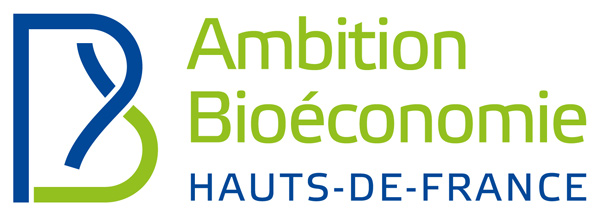Ÿnsect has raised 110 million euros to feed the planet with alternative proteins
ŸNSECT
What are the goals of Ÿnsect? To become the world’s leading supplier of natural fertilisers and of alternative beetle-based proteins for animal feed. With its new production site in Poulainville and its breakthrough technology protected by 25 patents, Ÿnsect is out to conquer the immense global market and is planning to expand in Europe and the USA.

A WORD FROM…
Antoine HUBERT, CEO of Ÿnsect
When and how did the Ÿnsect story begin?
Ÿnsect was created in 2011 in Evry by four cofounders, namely Jean-Gabriel Levon, Alexis Angot, Fabrice Berro and myself. It all began with a collaborative environmental project I established with Alexis, determined to improve animal feed and combat waste. Fabrice and Jean-Gabriel joined us as time progressed, with Ÿnsect emerging out of this collaborative spirit for an adventure unlike any other, namely the creation of a new food sector focussing on protecting the environment and producing sustainable insect-based alternative proteins.
What are the milestones and major projects that have accompanied the growth of your company?
The first laboratory trials were carried out in 2012 and the Molitor, a beetle with astounding properties, was quickly selected as the leading candidate due to its high protein content and its suitability for automated vertical farming technology. In just a few years Ÿnsect received multiple awards and received support from partners of renown: the company grew with the creation of new support functions and additional researchers. The first vertical insect farm was constructed in 2016 in Dole. Ÿnsect then began to market ŸnMeal, made from very high-quality insect protein for animal feed, mainly for fish and pets. After a record fundraising in 2019 of 110 million euros, from 2020 the Ÿnfarm work commenced in Poulainvillle, the world’s largest vertical insect farm, which will produce 70,000 tonnes p.a. of proteins and natural fertiliser based on Molitor to produce animal feed, plant nutrients and, one day perhaps, food for humans.
How has the Hauts-de-France region supported you?
We have received considerable support from the Hauts-de-France region to find the right site for our Ÿnfarm vertical farm, and also during all the pre-construction phases. The region also provided us with valuable help to develop links within the territory: we receive active support from public bodies to develop local partnerships. We would like to offer our warmest thanks to all the regional authorities who have enabled us to establish this project for the long term.
What are your development plans for the future?
As far as the Hauts-de-France region is concerned, we are planning to create over 500 direct and indirect jobs by 2024 and to develop partnerships with the region’s producers for local supplies; we will be actively participating in the region’s economic and social life.
For Ÿnsect, our goal is to build around ten vertical farms around the world by 2030 and to extend the reach of a new, natural, responsible and sustainable agri-food sector.

Ÿnsect is part of the Rev3 third industrial revolution programme being implemented in the Hauts-de-France region. Rev3 is a collective dynamic designed to transform the Hauts-de-France region into one of Europe’s most advanced regions in energy transition and digital technologies.







